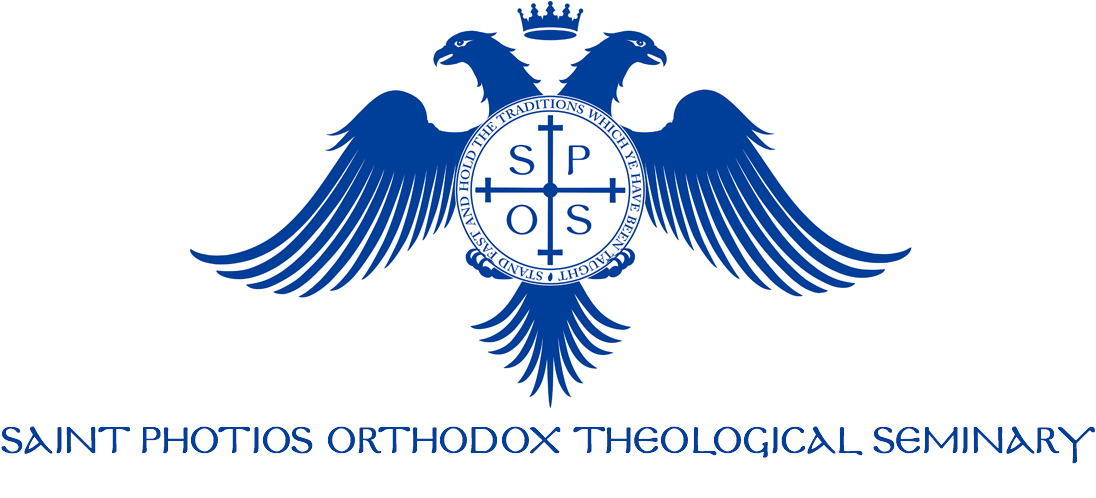The Name-Worshipping Heresy
- Details
- Created on Thursday, 01 December 2011 22:40
The Name-Worshipping Heresy is barely 100 years old. It was started in 1907 by a Russian monk named Illarion who wrote a book that was intended to popularize the Jesus prayer. Instead of inspiring piety, this book created a heresy. In his book, Illarion spoke of his spiritual experience with the Jesus Prayer and came to the conclusion that The name of God is God Himself and can produce miracles. The book became extremely popular among the Russian monks on Mount Athos. Many of them argued that, since according to the ancient Greek philosopher, Plato, the name of an object exists before the object itself does, so the name of God must pre-exist before the world was created, and that it (the Name) cannot be anything but God Himself. Among other things, this was thought to mean that knowledge of the secret name of God alone allows one to perform miracles. A similar concept exists in Jewish Kabbalah and in Buddhism.
The main proponent on Mount Athos of the Name-Worshipping Heresy was Hieromonk Anthony Bulatovich, who published a few books on the subject. The opponents of the Name-Worshipping Heresy, the other Athonite monks, considered this teaching to be pantheism and incompatible with Christianity. They argued that, before the Creation, God did not need this name so the name was created and is actually an empty sound having no mystical attributes in and of itself.
In Russia, the most vocal opponent was Archbishop Antony (Khrapovitsky) of Kiev. In 1912, by decision of the Holy Synod, Hilarion's book was forbidden in Russia. In September 1912, the Name-Worshipping Heresy was condemned by Patriarch Joachim III of Constantinople and in February 1913 it was proclaimed to be pantheism by Patriarch Germanus V of Constantinople. The heresy was also condemned by the Russian Holy Synod in 1913 and by Patriarch Gregory of Antioch. The well-known Father Cherubim was one of the most vocal opponents of this teaching on Mount Athos.
In October 1918 the Holy Synod of the Russian Orthodox Church no longer allowed Name-Worshippers to participate in church services unless they repented. The decision was signed by the Patriarch of Moscow, Saint Tikhon. In its decision the Holy Synod stated that: Hieroschemamonk Anthony was not allowed to serve as long as: he continues to disobey Church authority and spread his musings which have been condemned by the Church hierarchy to the harm of the Church.
The heresy was continued in Paris where the proponents of the heresy of Sophia, Florensky and Bulgakov also supported the Name-Worshipping heresy. Hilarion's book was reprinted in 1998 and today the leading advocate of this blasphemy is the deposed Russian Bishop Gregory Lourie, who recently was allowed to receive Holy Communion at the Holy Transfiguration Monastery in Brookline, Massachusetts. Archbishop Hilarion Alfeyev, an advocate of the Awake Sleeper Heresy, wrote in 1999: Even though the movement of the 'Name-worshippers' was crushed at the beginning of the century on the orders of the Holy Synod, discussion of the matter regained impetus in the years preceding the Moscow Council (1917–18) ... Thus the Church's final assessment of 'Name-worshipping' remains an open question to this day.
This heresy has attracted certain clergy and laity who consider themselves intellectuals. It is being resurrected in order to lead many away from the Faith of the Gospels and the Holy Church.
Orthodox Awareness
(Ψευδο) Προφητείας Παϊσίου το ανάγνωσμα...
Εις την εφημερίδα «Ελεύθερην Ώραν» της 6-8-2009 (ν.η.) ανγράφεται το ακόλουθον δημοσίευμα υπό τίτλον «Ο Γράψας, ο Παϊσιος και η Προφητεία!»:
«Για τον στρατηγό Δ. Γράψα υπήρχε άλλη Προφητεία. Την φοβήθηκαν.
Από καιρό κυκλοφορεί η προφητεία του γέροντα Παΐσιου… Βέβαια, άλλο προφητεία, άλλο πραγματικότητα… Αλλά, κάπου υπάρχει μία άκρη! Read more...
Missions
Saints Peter and Paul Orthodox Mission, Tucson, Arizona
Saints Peter and Paul Orthodox Church is a beautiful mission parish near downtown Tucson, a city in southern Arizona. It was started in 1997 by Father John Bockman, who was a missionary Priest formerly serving missions in Tennessee and Massachusetts since 1990. Father John served the faithful in Tucson and the surrounding area in his home Chapel until his repose in November of 2000. His wife, Presbytera Valerie, continued to make her home Chapel available for the mission, with clergy from Saint Nectarios Orthodox Church in Seattle and His Eminence, Metropolitan Moses of Toronto (then of Portland), visiting to provide the Divine Services.
Read more...Youth
2025 Youth Conference
Please join us for the 2025 youth conference in Toronto, Ontario, Canada! To learn more, visit the conference website.
Ask A Priest
Morning and Evening Prayers
Q. Are the prayers in the blue prayer book [A Prayerbook for Orthodox Christians by the Holy Transfiguration Monastery —ed.] compulsory for everyone? I mean their morning prayers and the service of Small Compline. My confessor gave me a special rule but wasn’t clear about whether this replaced the book prayers or was in addition to them. Read more...





